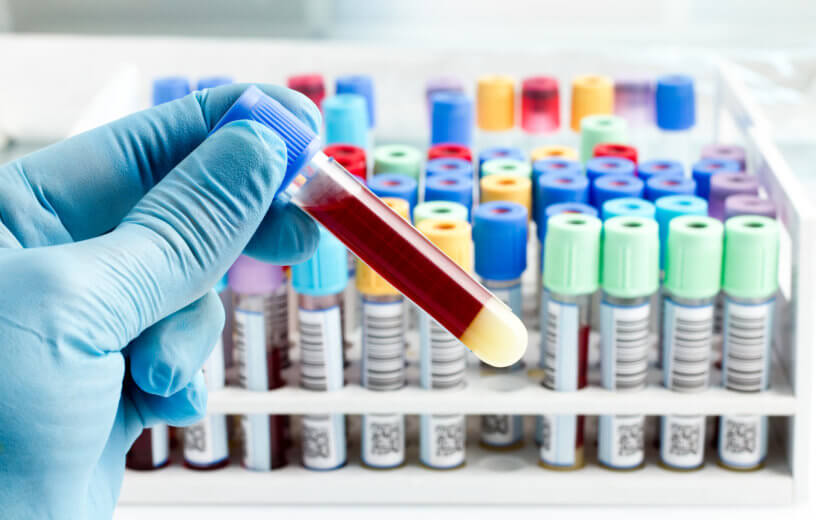LUGANO, Switzerland — A promising new blood test has been developed for early cancer detection and, incredibly, researchers say it may be able to spot dozens of types of cancers in patients.
Early cancer detection can identify tumors when patient outcomes are most favorable and treatment is less gruesome. Doctor say this new blood test can accurately detect 50 types of cancer and also the tissue where the cancer originated, even before patients are exhibiting symptoms.
An international team of researchers led by US Oncology developed this new test that they hope will be included in national cancer screening programs. The test has a 0.7% false positive rate — it incorrectly identifies cancer in healthy patients less than 1% of the time. The test was able to accurately identify the tissue of origin of the cancer in about 90% of samples tested for the study.
This test uses a clever trick to identify cancerous tumors through their DNA. Gene expression is controlled by chemical changes to the DNA in a process called “methylation.” Abnormal methylation patterns can lead to changes in gene expression that cause tumor growth. Cells release DNA into the bloodstream called cell-free DNA (cfDNA), so tumors release cfDNA that exhibit abnormal methylation. A machine learning classifier (an algorithm made by a computer) tests specific methylation sites in the genome to predict if cancer is present and where it originated.
This new breakthrough builds off of previous tests developed by this research group. “Our earlier research showed that the methylation approach outperformed both whole genome and targeted sequencing in the detection of multiple deadly cancer types across all clinical stages, and in identifying the tissue of origin,” says senior author Dr. Michael Seiden, President of US Oncology, in a release. “It also allowed us to identify the most informative regions of the genome, which are now targeted by the refined methylation test that is reported in this paper.”
Researchers used their refined methylation test on blood samples from 6,689 participants. 2,482 participants had untreated cancer and the other 4,207 were cancer-free. The samples were fed to the machine learning classifier which identified methylation changes to classify samples as cancerous or non-cancerous. If samples are classified as cancerous, the classifier also identifies the type of tissue that the cancer originates in.
Machine learning classifiers are typically trained on a large portion of the data and then validated on the remaining data samples. Researchers found that the performance of the classifier was consistent in both the training set and the validation set.
The classifier has a 0.7% false-positive rate in the validation set. The true-positive rate of the classifier varied depending on the type of cancer it tested for. In 12 types of cancer that are often the most deadly (anus, bladder, colon/rectum, esophagus, head and neck, liver/bile-duct, lung, lymphoma, ovary, pancreas, plasma cell neoplasm and stomach), the true positive rate was 67.3%. The true positive rate was 43.9% for all 50 cancer types included in the study. The accuracy of the classifier improved with each clinical stage. Also, the classifier accurately identified the tissue of origin in 93% of samples.
“These data support the ability of this targeted methylation test to meet what we believe are the fundamental requirements for a multi-cancer early detection blood test that could be used for population-level screening: the ability to detect multiple deadly cancer types with a single test that has a very low false positive rate, and the ability to identify where in the body the cancer is located with high accuracy will help healthcare providers to direct next steps for diagnosis and care,” explains Dr. Seiden.
Adds Professor Fabrice André, editor-in-chief of the Annals of Oncology (the peer-reviewed journal where the study is published): “This is a landmark study and a first step toward the development of easy-to-perform screening tools. Earlier detection of more than 50% of cancers could save millions of lives every year worldwide and could dramatically reduce morbidity induced by aggressive treatments.”
